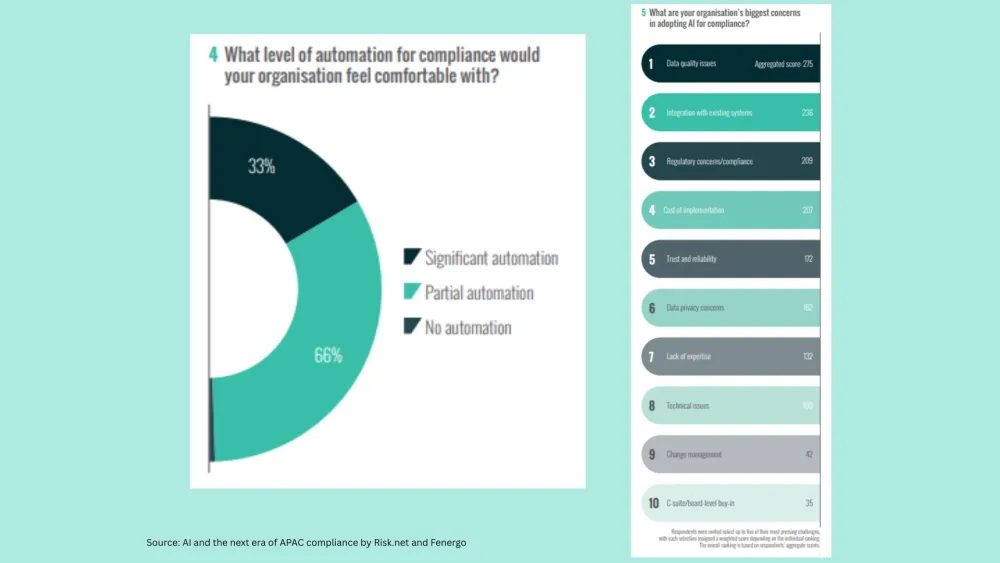
FinTechs vs banks: from foes to frenemies
The future looks bright for banks and FinTech but only if they learn to strategically cooperate rather than ruthlessly compete.
The recent superhero blockbuster “Batman vs. Superman: Dawn of Justice” should strike a chord with bankers and financial technology (FinTech) executives: Because while Batman and Superman began the movie at each other’s throats, the crime fighting duo came to a truce and worked together to overcome a common challenge – a scenario that is starting to be mirrored among Asian banks and FinTech firms.
Asian banks are beginning to see FinTech firms less as competitors and more as strategic allies that can infuse their organisations with entrepreneurial agility and digital innovation, according to analysts. FinTech firms looking to scale up are similarly keen to collaborate with incumbent banks that often have superior distribution and regulatory expertise.
The general forecast is that there will be more cooperation between banks and FinTech firms due to synergies that are too good to ignore, although there will still be rivalries in pockets of product and service overlaps.
“Asian banks, like their counterparts in US and Europe, are paying increased attention to Fin Techs. They are both competing and collaborating with Fin Techs,” says Teeranun Srihong, chairman of Kasikorn Business-Technology Group.
Srihong estimates that around 90% of Fin Techs want to collaborate with, rather than try to displace banks, and have realised that they have more to gain from working with banks.
“We will see more FinTech winners coming out of the collaboration models than the pure disruption model as before. We are now working closely with a few Fin Techs to try to leverage the strengths of both sides and we see that coming along quite nicely,” says Srihong.
Competitive collaboration
The new status quo that is emerging is called competitive collaboration, and will be a key theme for success in the industry for the coming years, says James Lloyd, Asia Pacific FinTech leader at EY.
He adds that the rise of Fin Tech startups presents both a challenge and an opportunity for Asian banks. “The challenge is that startups have innate advantages relative to speed (both of decision-making and of action), organisational agility, and a demand-led focus on transparency and customer experience. The opportunity is that incumbent banks have key competitive advantages relative to such challenges – not least those pertaining to cost of capital, data, distribution, and regulatory certainty,” he notes.
Lloyd reckons that banks took a beating when well-capitalised, technology-driven Fin Tech startups began picking away at traditional banking profit pools in consumer or commercial credit, cross-border payments and foreign exchange transactions. Banks were forced to unbundle their product and service offerings, resulting in painful operational changes and profit declines. But banks should be able to rebound well if they can ride on the re-bundling trend and strike up collaborations with Fin Techs.
“As the market matures and clear leaders emerge, we can expect to see some re-bundling of these distinct products and services – with leading Fin Techs seeking deeper collaboration both with each other and with forward-looking incumbents,” says Lloyd.
“Moreover, we’re likely to see even more collaboration between incumbents themselves, as they seek to acquire or maintain product and geographic coverage – without having to build it themselves. Collaboration can also serve as an efficient means to pool knowledge in relation to new technologies such as blockchain,” he adds.
Most collaborations will be under the premise of smaller FinTech firms needing to latch onto larger incumbent Asian banks, but this might not hold as true in China where digital disruptors have grown to rival incumbents and could be pickier with collaborations.
“The regulatory environment, the availability of capital, the size of the addressable market, and the sheer speed at which the mainland Chinese market has developed has led to a situation where leading digital disruptors in e-commerce, payments, and alternative finance have already grown to a size considered systemic,” says Lloyd. “Even here, however, opportunities exist for collaboration between Fin Tech industry leaders and forward-looking incumbents.”
Data security cooperation
Cooperation between banks and Fin Tech firms will also spring from challenging new areas of shared interest such as data security.
“The proliferation of so much new and analysable data – a trend often tied to the rise of mobile telephony and e-commerce — is of particular interest in Asia where most markets lack a reliable third-party of a governmental credit-scoring system. The security of such data should be of paramount importance both to startups and to incumbents,” says Lloyd.
Banks have led the charge on data security upgrades because of their size and regulatory culpability, but this has also opened up opportunities for banks to form partnerships with startups whose data security might not be as sound.
“Startups focussed on speed-to-market and customer experience and have not always given the same consideration to the regulatory environment in which they operate; what can be a strength in terms of agility can become a weakness as the startup grows,” says Lloyd.
“Accordingly, we can expect these same startups to come under increased scrutiny as they scale – attracting more attention from regulators and hackers alike. Once again, when it comes to balancing customer experience with data security, both sides can benefit from increased collaboration and strategic partnerships,” he adds.
Lloyd says that banks do have a lot of work ahead of them if they decide to pursue such cooperations, and much will depend on how well banks can perform tailored procurement, due diligence, and vendor risk management.
Srihong says that Kasikorn has been making investments in security architecture that also improves, or at least preserves, consumer experience, which has an added benefit of making the bank more more attractive to Fin Techs.
“Banks need to strike a proper balance between security and convenience, bearing in mind that compromised security can result in a collapse of confidence in the system. As such, this is an area that banks with robust security architecture and experience can offer tremendous value to smaller and, sometimes, less experienced Fin Techs,” says Srihong.
Banks can ease the impact of security checks by using less intrusive validations like facial recognition, voice recognition, biometrics and step-up validation such as inquiries requiring only a pin entry while transferring funds to the same account requiring both pin entry and biometric verification, says Mohd Suhail Amar Suresh Abdullah, group chief technology officer at Maybank.
Omnichannel and cashless challenges
Incumbent banks and Fin Tech startups might see clear cooperation paths in data security, but there is some haze surrounding synergies in omnichannel management – or the consistent service and experience across all banking channels – and cashless payments. Part of it is in uncertainty on how banks should move forward in these areas.
“Omnichannels used to be the foundational asset for seamless experience across all channels. However, the cost of omnichannel, especially on larger and more established banks, usually leads to a negative return on investment,” says Abdullah.
Some banks are going back to the drawing boards and have found better returns by imbuing their channels with a similar look and feel, as well as identifying the transactions that are truly cross-channel. Abdullah says this helps create the seamless banking experience but at significantly lower costs.
Srihong says Kasikornbank has found success in improving their omnichannel management by understanding what matters most to the customers and focussing on meticulous execution with built-in flexibility.
“It really needs to start anew with customer journey and experience as the focal point of design. Then, we need to move each channel piece by piece towards the end goal of cross channel integration.It is very tedious, but important,” Srihong.
Meanwhile, Asia has a long way to go when it comes to transitioning into a fully cashless society, which means a relatively lackadaisical approach for some banks.To illustrate the disparity in demand and preparation across the region, analysts observe that Hong Kong is a shining example of a nearly cashless society while southeast Asian countries are only beginning to ride on the trend.
“It is entirely possible to live and work in Hong Kong using just an Octopus Card and, for more expensive purchases, a credit or debit card. Similarly, when I travel to Singapore or Australia, I rarely have need for cash given the high degree of card penetration,” says Lloyd.
Lloyd argues that other markets, such as Indonesia, the Philippines, Malaysia, and Vietnam may be less advanced in terms of traditional card penetration, but the benefits of electronification of cash remains the same as in Hong Kong.
Srihong says banks are eager to support cashless transactions but it will take time for the public and governments to move away from using cash, although certain developments such as the implement of e-payment policy in Thailand are starting to help commercial banks develop the needed infrastructure for cashless transactions.
Despite the challenges in omnichannel management and cashless payments, there is a sense that Asian banks and Fin Techs working together will yield groundbreaking solutions due to their inherent synergy.
“There will be many opportunities for Asian Banks and Fin Techs to collaborate as there are very few overlaps,” says Abdullah. “Asian banks offer foundation and reach while Fin Techs bring in intellectual property and innovation.”



















 Advertise
Advertise









